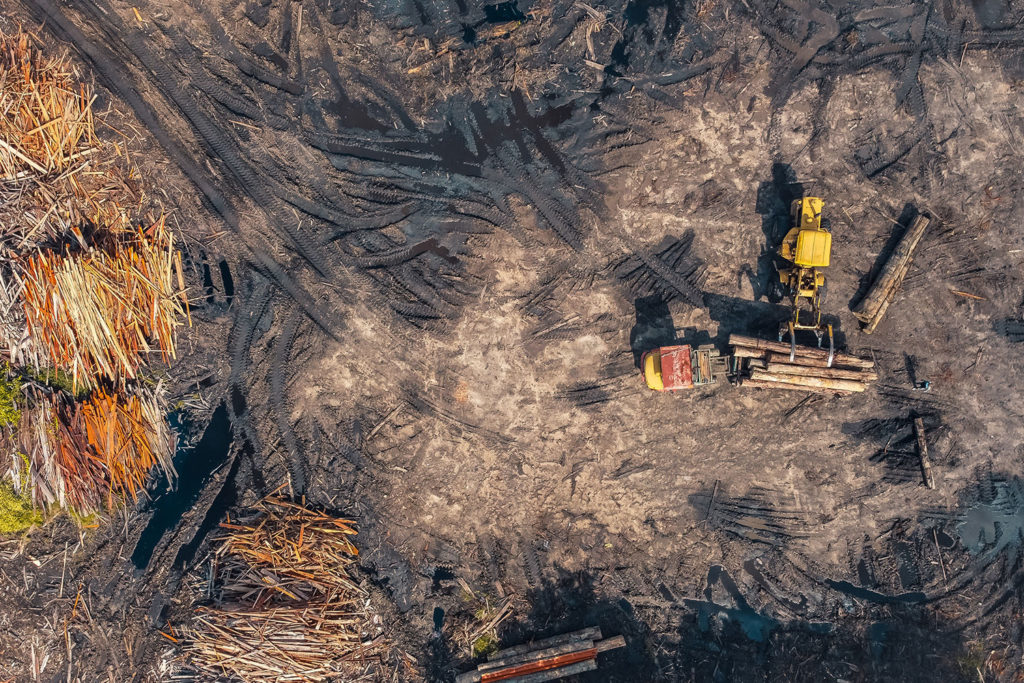One frequent misunderstanding of Christianity is that it is anti-environment. The misconception is based on a certain reading of the book of Genesis, on the alleged record of Christianity over time, and on the current beliefs of some Christians that the end of the world is at hand. In truth, Christianity, properly understood, supports most ecological aims.
First, Genesis. “God said to [Adam and Eve], ‘Be fruitful and multiply, and fill the earth and subdue it; and have dominion over the fish of the sea and over the birds of the air and over every living thing that moves upon the earth’” (Gen. 1: 28). The words in the original language can be taken to mean “dominate,” in the sense of “exploit,” or “rule over,” implying responsibility for good governance. Many recent Christians have interpreted the text to mean that humans are “earth-keepers,” or stewards of the planet. Nonetheless, the text has more often been taken to mean that humans may exploit nature for human benefit.
Counter to this interpretation is the love of nature expressed in the biblical Song of Songs and the book of Daniel, to name two examples. Daniel says, “Angels and heavens bless the Lord; sun and moon; stars of heaven; showers and dews; winds, fire, and heat; frost and cold; ice and snow; night and day; light and darkness; lightning and clouds; mountains and hills; springs, seas, and rivers; fish and birds; animals wild and tame, bless the Lord” (Dan. 3). Jesus said, “Consider the lilies of the field, how they grow; they neither toil nor spin, yet I tell you, even Solomon in all his glory was not clothed like one of these” (Matt. 6: 28-29; see also Luke 12: 27). In the 13th century, Saint Francis of Assisi and his Franciscans found God in the “beauty of created things, in the variety of light, shape, and color in simple, mixed, and even organic bodies, such as stars and planets, stones and metals, plants and animals.”
Second, the Christian record. Christians, Jews, Chinese, Africans and everybody else had little thought for the preservation of nature when humans were few and surrounded by vast deserts, jungles, forests, and mountains teeming with wild animals and other threats. Taming these threats was a universal human desire and practice. During the Roman Empire, when Christianity first arose, nothing distinguished Christians from other Romans in their environmental actions, though in theory Christianity did disenchant nature from the spirits who polytheists thought dwelled in it.
It was only beginning with the population boom of the 12th century and the growth of cities that Europeans began seriously clearing the wilderness. The Catholic order of Cistercian monks made it their business to clear forests and swamps so as to turn them to productive agricultural use. Then, as western Europeans moved gradually into the wilder eastern and northern sections of Europe, more and more land was turned over to fields and commerce. Even so, the Europe of 1812 looked much more like the Europe of 1212 than it did that of 2012. It was only with the Industrial Revolution of the 19th and 20th centuries that large-scale deformation of the environment began, and few historians would care to argue that Christianity caused the Industrial Revolution. The mover of industrialization was not Christ, but Mammon.
Third, the end of the world. Over the past few decades, an increasing number of Christians have subscribed to Dispensationalist views that the end of the world will happen very soon and that it will mean not only the end of humanity but of all of nature, at least on Earth. One corollary of this view was that this meant humans should gratefully use up natural resources as quickly as possible. Dispensationalist views are held by a growing number of Christians, but traditional Protestants and Catholics have joined humanists and others in condemning pollution and its cause: the exploitation of nature and of people.
No informed person denies that humanity has deformed the environment, but one has only to look at the deforestation of ancient Greece and China, neither of them even remotely Christian, to realize that the correlation between Christianity and the deformation of nature is terribly weak. The universality of human destructiveness toward the environment has recently been made clear by Jared Diamond. Although Christians have done their share of polluting, there is nothing in Christianity itself that would promote it.
A person who believes the universe is the creation of God, who loves beauty, may be more inclined to protect the beauty of the universe than one who believes the universe is a cosmic accident. Physicalists believe nature is blind and can have no purpose. If nature is blind, then a pestilential swamp is as good as the Sierra. A few materialists have semi-deified nature and Earth recently, bestowing on them some preemptive rights, an idea inconsistent with their own materialist principle that nature has no purpose or meaning.
This post is an excerpt from the book Exposing Myths About Christianity by Jeffrey Burton Russell (IVP Books, 2012). It is used with permission. You can purchase this resource in its entirety here.
Published January 17, 2018




